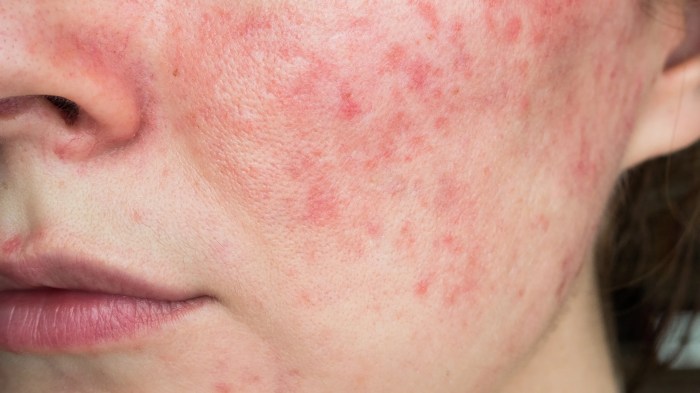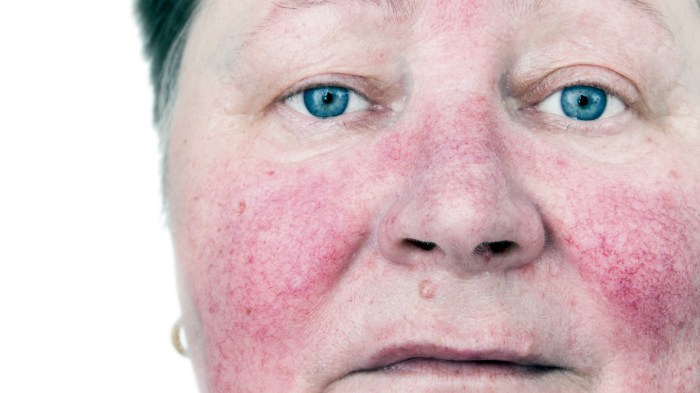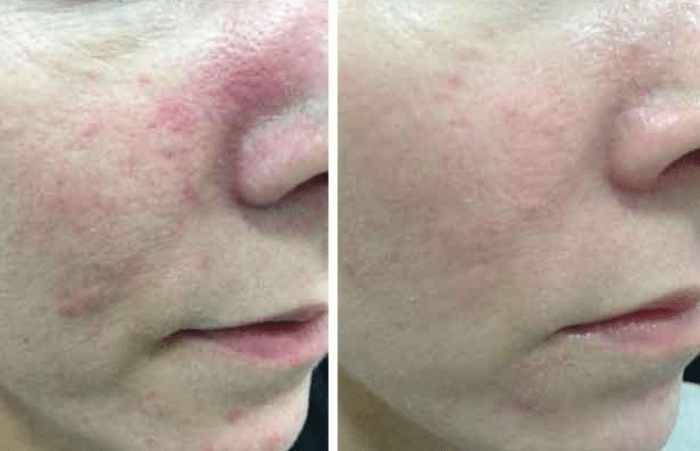When providing services for a client with rosacea you should – When providing services for a client with rosacea, it is imperative to adopt a comprehensive approach that encompasses skincare, lifestyle modifications, medical interventions, and patient education. This multifaceted strategy ensures optimal management of the condition, minimizing flare-ups and enhancing the client’s overall well-being.
Understanding the unique challenges faced by individuals with rosacea is crucial. This chronic inflammatory skin condition requires tailored treatment plans that address both its underlying causes and its often unpredictable nature. By incorporating the following guidelines, service providers can effectively support their clients in navigating the complexities of rosacea.
Rosacea: Treatment and Management: When Providing Services For A Client With Rosacea You Should

Rosacea is a common skin condition that causes redness, swelling, and visible blood vessels on the face. It can be a chronic condition, but it can be managed with proper treatment and lifestyle modifications.
Treatment Considerations
When treating rosacea, it’s important to avoid harsh or abrasive products that can irritate the skin. Gentle cleansers and moisturizers are essential for keeping the skin clean and hydrated. It’s also crucial to select appropriate makeup and skincare products that are non-comedogenic and fragrance-free.
Lifestyle Modifications

Managing stress levels can help minimize rosacea flare-ups. Regular exercise, meditation, and yoga are effective stress-reducing techniques. Following a healthy diet rich in antioxidants can also benefit rosacea patients. Antioxidants help protect the skin from damage caused by free radicals.
Sun protection is essential for preventing rosacea flare-ups. Sunscreen should be applied daily, even on cloudy days.
Medical Interventions

Topical medications like metronidazole or azelaic acid can be effective in reducing rosacea symptoms. In severe cases, oral antibiotics may be prescribed. Laser or light therapy treatments can also be beneficial in reducing the appearance of redness and visible blood vessels.
Patient Education and Support

Patient education is essential for managing rosacea. Patients should be informed about the causes and triggers of their condition. They should also be aware of common irritants like fragrances or alcohol. Tips on managing flare-ups and reducing symptoms should be provided to patients.
Support groups and online forums can provide a sense of community and support for rosacea patients.
Clarifying Questions
What are the common triggers for rosacea flare-ups?
Common triggers include sun exposure, stress, certain skincare products, and spicy foods.
What types of skincare products are recommended for rosacea-prone skin?
Gentle, fragrance-free cleansers and moisturizers that are specifically formulated for sensitive skin are recommended.
Can rosacea be cured?
While there is no cure for rosacea, its symptoms can be effectively managed with proper treatment and lifestyle modifications.